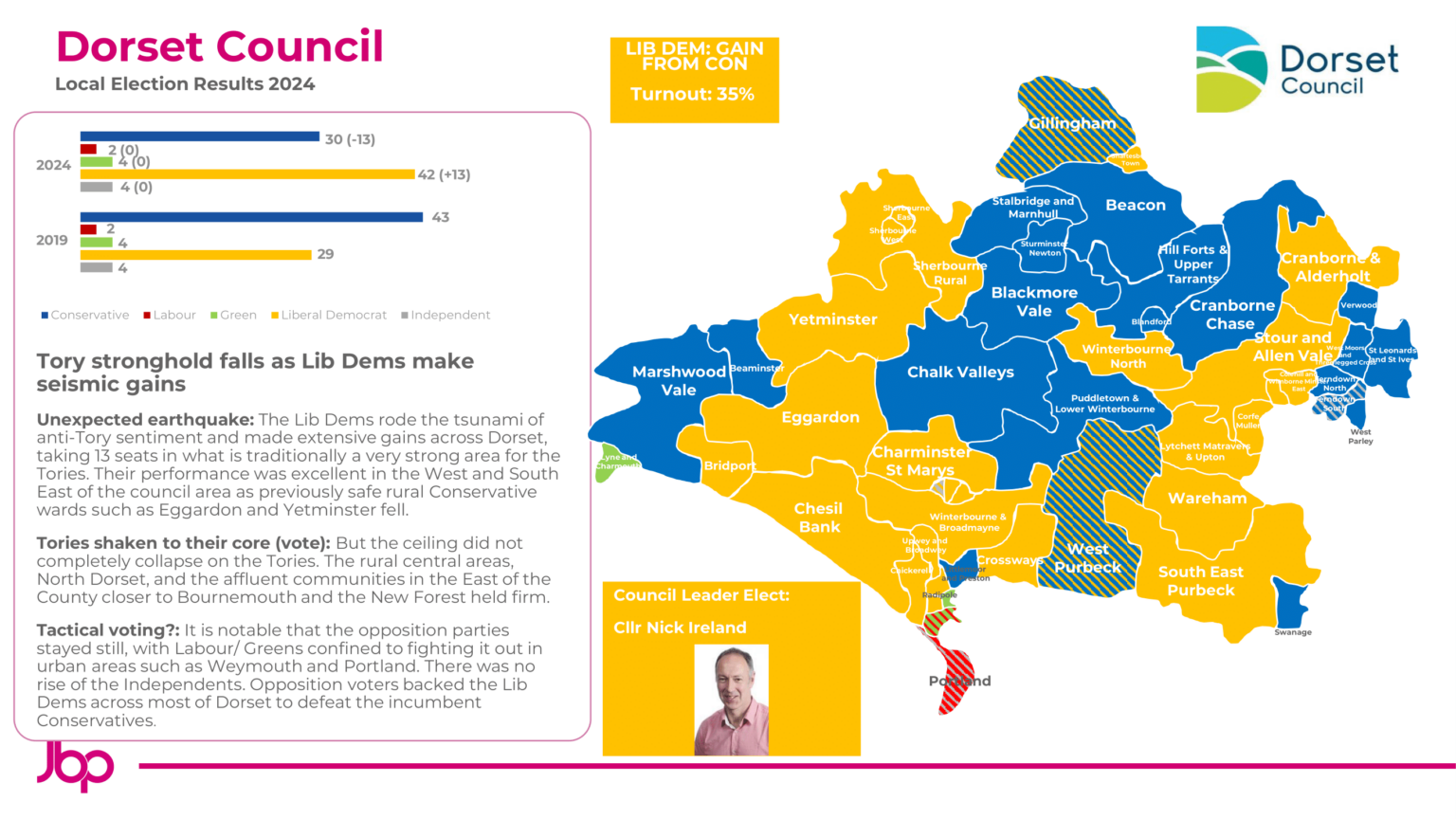Dorset Council
As the votes were tallied in Dorset the political landscape underwent a profound transformation, akin to an earthquake reshaping what was once solidly Conservative terrain. Lib Dem leader Councillor Nick Ireland could hardly contain his satisfaction as his party not only rattled the established order but also claimed outright control of the council.
The Lib Dems, traditionally confined to urban strongholds like Dorchester, Sherborne, and Wimborne Minster, rumbled through the rural expanses of Tory Dorset, particularly in the west. Here, the tremors were felt most acutely as ward after ward, previously secure under Conservative majorities like that in Eggardon, shifted dramatically to the Lib Dems.
While some areas in North and Central Dorset managed to withstand the full force of this political upheaval, providing some stability for the Conservatives, these were mere aftershocks compared to the upheaval elsewhere. By the night’s close, the Tories found little reason for celebration, facing a landscape dramatically altered by tectonic political shifts.
This upheaval signals instability to Conservative MPs such as Chris Loder of West Dorset and Richard Drax of South Dorset, who will be eyeing the rumbling ground with trepidation. With each constituency showing robust Conservative majorities on paper, the scale of these council losses could forecast more tremors to come.
Amidst this shifting ground, the Lib Dems capitalized masterfully on tactical voting. As Labour, Greens, and Independents held their ground, a resonant “get the Conservatives out” message reverberated across Dorset, echoing opposition forces’ strategic focus and unity. This concerted effort left a lasting impression, suggesting that Tory voters who delivered a proverbial bloody nose to their party, along with those who abstained, might still realign their loyalties come the General Election.
In Dorset, the political upheaval has redrawn boundaries and expectations, leaving traditional power structures in disarray and heralding a new era of Lib Dem control.













